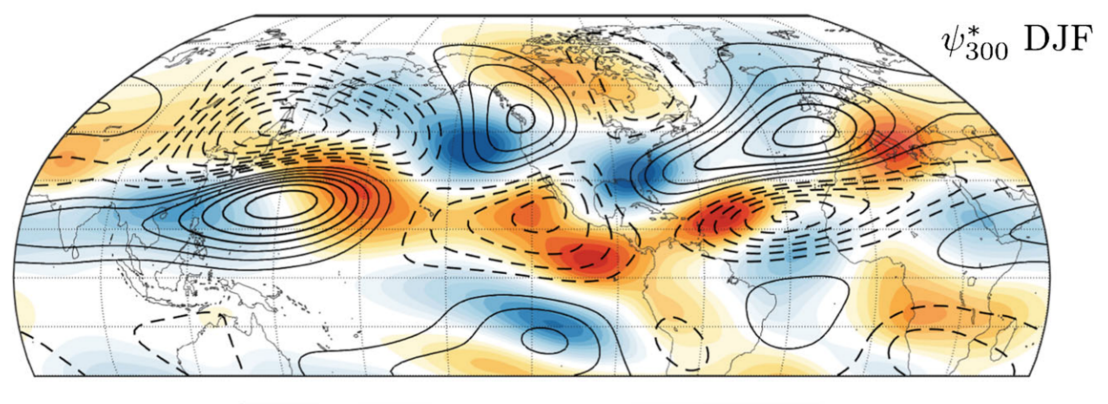Atmospheric Circulation Variability and Change

Uncertainty in future changes in regional climate arises primarily from uncertain changes in the large-scale atmospheric circulation, which redistributes heat, moisture, and atmospheric tracers around the globe. Understanding of changes in the atmospheric circulation lags behind understanding of climate changes that are directly related to temperature, because atmospheric circulations have large variability that makes robust assessments of trends difficult and because atmospheric circulations are governed by complex dynamics that span scales ranging from microscopic to global and involve coupling with all other components of the Earth system. Confidence in projected circulation changes can be gained by showing their robustness across different climate models that employ different empirical treatments of small-scale processes and by understanding the physical mechanisms governing these robust circulation changes.
Our work focuses on evaluating projected changes in atmospheric circulations that are relevant for regional climate impacts, such as stationary waves, monsoonal circulations, and extratropical cyclones, and understanding the physical mechanisms underlying these changes. Much of what is known about changes in these circulations as well as open questions that remain are reviewed in Download Wills et al. 2019. Our past work has shown that moist processes and the vertical structure of the atmosphere are important factors determining how circulations respond to climate change (Download Wills et al. 2017; Download Wills & Schneider 2018) and this continues to be a focus of our work. In addition to understanding changes in the seasonal-mean circulations, there is a need to understand changes in the variability of circulations, which in turn leads to variability in rainfall and temperature, and this is the focus of the Ph.D. project of Zhenghe Xuan.
Current Ph.D. Projects

Understanding Tropical and Midlatitude Circulation Responses to Climate Change: A Wave Spectra Perspective - Zhenghe Xuan
Atmospheric circulations are a key source of uncertainty in regional climate change projections. One way to understand future impacts on regional climate is through changes in the variability of atmospheric circulations. However, the wide range of processes and scales that are relevant mean that there are many, sometimes diverging, perspectives in literature. A cohesive understanding of changes in atmospheric circulation variability is missing.
This PhD project aims to use large ensemble climate model data to understand future responses of atmospheric circulation variability and, subsequently, to predict regional climate impacts on temperature and precipitation. We analyze the CESM2 large ensemble dataset and apply wave spectra decomposition to understand the multiple spatial and temporal scales that impact circulation variability. As the relevant physics vary with latitude, we apply different mechanisms (such as gross moist stability in the tropics and Rossby wave theory in the midlatitudes) to explain why the variability responds as it does. The use of physical theories will allow us to connect these dynamical changes to a thermodynamic origin, further constraining circulation responses in the future.
Supervised by Robert Jnglin Wills, Clarissa Kroll, and Jacopo Riboldi